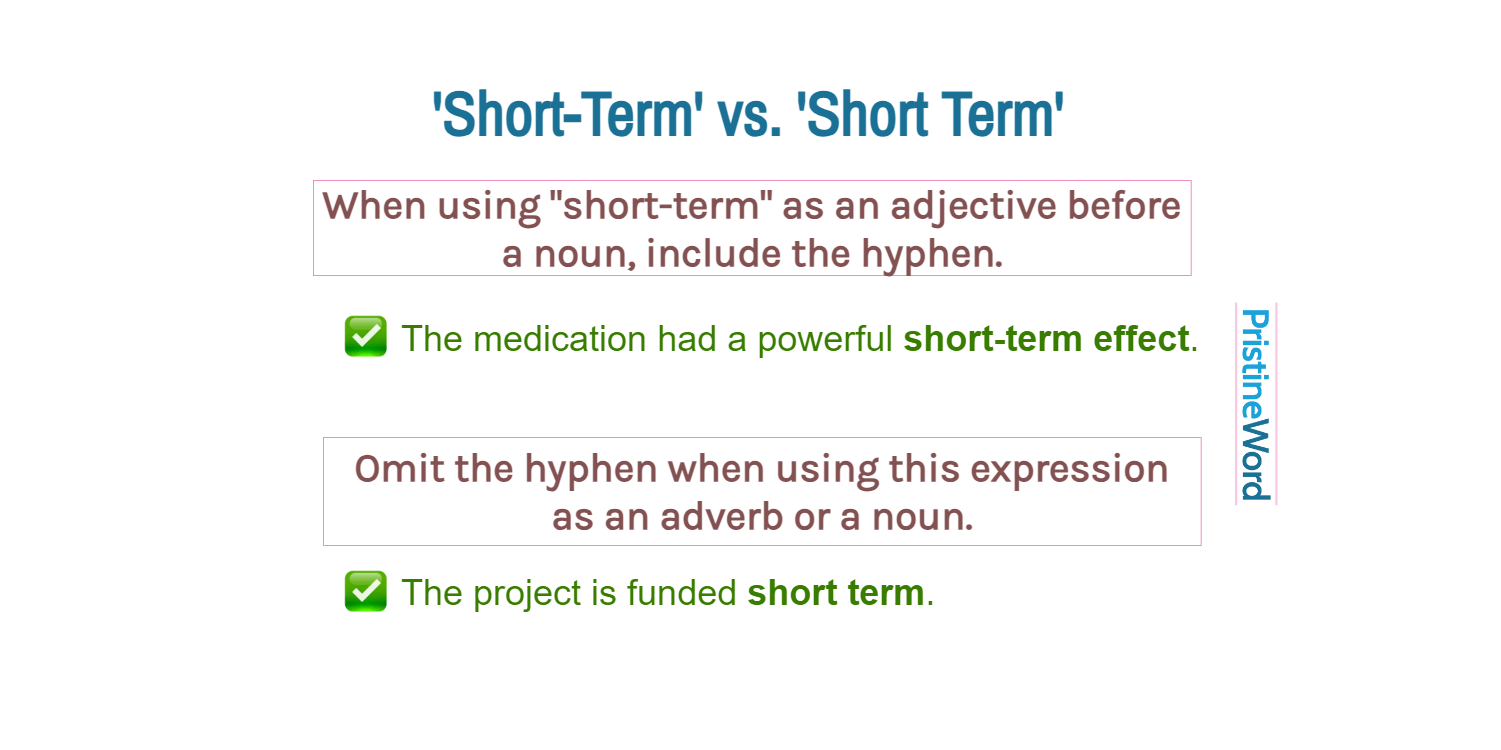Write "short-term" when used as an adjective before a noun, and "short term" otherwise.
When using "short-term" as an adjective before a noun, include the hyphen. It helps clarify that the two words are functioning together as a single adjective.
Olivia has a short-term contract.
Olivia has a short term contract.
Omit the hyphen when using this expression as an adverb or a noun.
The project is funded short term.
The project is funded short-term.
When serving as an introductory phrase, the hyphen is also omitted.
In the short term, we expect to see significant growth in our renewable energy sector.
Write "short-term" when used as an adjective before a noun, and "short term" otherwise.
While not being strictly incorrect, it is generally recommended to use a hyphen in "short-term" when it's functioning as an adjective modifying a noun. It is also a widely accepted practice.
Many investors are concerned about the stock's short-term volatility.
The medication had a powerful short-term effect, but its long-term efficacy is still unknown.
Follow the same strategy with the terms "medium-term" and "long-term."

